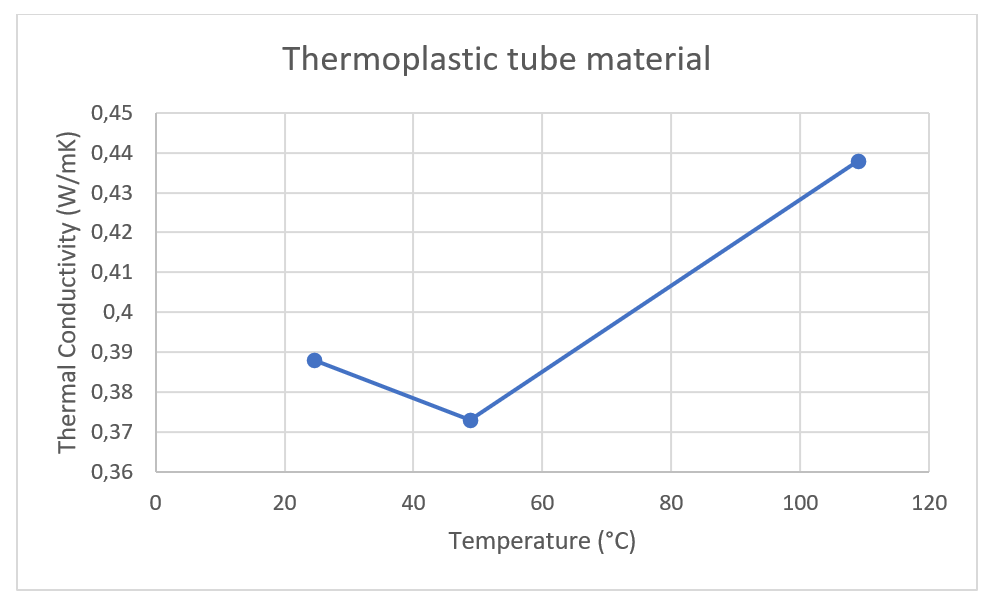Heat shrinking materials become soft with higher temperatures and thus adapt to the shape of the underlying object. So, this type of material can be used to seal and protect wire harnesses, cables, pipes and tubes.
Most cable insulations are made of various thermoplastic materials, often containing some silanes. Their thermal conductivity is of interest because of the various application fields they are used and therefore should be known to the users.

The measured sample was a pressed tube material. The thermal conductivity was determined by THB Basic/Advanced/Ultimate (THB L56) at room temperature, 50 °C and 110 °C. Therefore, the sample was placed together with the THB sensor (sandwich-setup) in a furnace.
It was recognized that the sample softens at higher temperatures, whereas it is hard at room temperatures, which is typical behavior of that kind of material. The curve shows, that at first, the thermal conductivity decreases until 50 °C and then it rapidly increases up to 110 °C. This increase is probably reinforced by the softening of the material and by that the thermal contact to the sensor is significantly improved.

